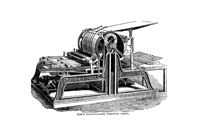
Most academics engage in both teaching and research. Both are intimately tied to communications, and in particular to the patterns of scholarly communications that have developed over the past century. We're all familiar with the process of faculty authors producing research articles, peer-reviewed journals vetting the scholarship and distributing it, and libraries organizing, archiving, and making it available to other scholars and students as the foundation on which new knowledge is built.
If you have questions about authors' rights or other scholarly communication issues, contact your Subject and Area Librarian or the Digital Scholarship services at digitalscholarship@uoregon.edu
For UO authors
- Learn about the UO Open Access Scholarship Policy, passed by UO Faculty Senate in May 2021
- Deposit your work in Scholars' Bank, the UO's institutional repository, and guarantee that it will be accessible to a world-wide readership
- Get Funding to publish Open Access Articles and Books, with the UO Libraries' Open Access Article and Book Processing Charge Award
- Get consulting assistance on your publishing questions:
- Comply with NIH Public Access Policy (for authors funded through NIH grants)
- Comply with NSF data management rules and other funder mandates for public access to data
- Find Open Access Journals - consider publishing in an OA journal and take advantage of many benefits
For UO editors and journal publishers
For students
- Academic Integrity and Library Research, a self-guided tutorial
- Citation Guide, covers the why and the how-to
- Grad students: Submit your doctoral dissertation electronically, and it will be automatically deposited in Scholars' Bank, available open access to the world
- Undergraduates: Submit your work to the Oregon Undergraduate Research Journal
